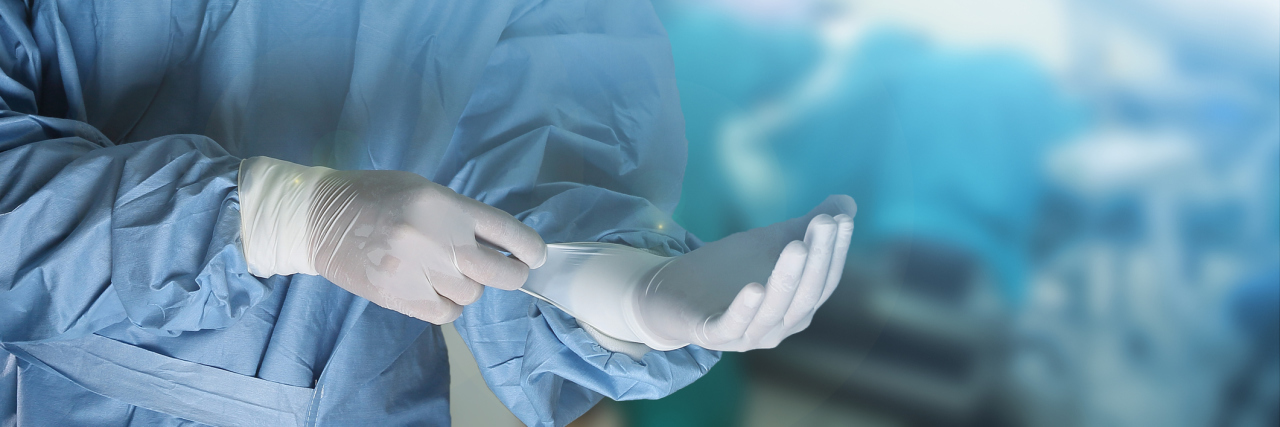You went to the doctor and they advised you that you need laparoscopic surgery because you are having signs and symptoms of possible endometriosis. However, you have either never had surgery in your life, or you have no idea what laparoscopic surgery even is. Questions, concerns and fears start rushing through your mind.
Before my surgery, I was not part of any chronic illness or endometriosis support groups. When I finally found a doctor willing to perform surgery, I was at a loss. I had no idea what to expect or what to do to prepare. No matter how many questions my doctor answered, I still did not feel prepared or ready and had absolutely no idea what to expect.
I prepped the best I could with the little information and knowledge I had available to me. After my surgery and my endometriosis diagnoses, I joined multiple support groups with other women struggling with the same illness. I began to see a large number of women joining the group who have yet to have surgery but knew they were struggling with this horrible disease. I saw multiple posts of women asking what they can do to prepare for surgery.
With that being said, I am writing this post in hopes it can help women better prepare for their first-time surgery, something I wish I had when I was preparing for mine.
Here are 10 things to do to prepare for laparoscopic surgery:
1. Pamper Yourself
The day before surgery, take care of you. Have a very long shower, wash your hair, shave, cut your nails, paint your nails, do everything you can because you may not be able to for a few days/weeks.
2. Make Prior Arrangements
Be sure to let work know you need at least two weeks off. However, remind them it could be longer; this will depend on how your surgery goes. It is essential you take those full two weeks of recovering, even if you are feeling better. Your body just underwent surgery and you do not want to relapse. Be sure to have people close by to help take care of you, at least for the first week. Do not forget your animals! Be sure you have plans for what you want to do with them while you recover. Remember, you will not be able to drive after surgery – make sure you have someone who can drive you.
3. Pack an Overnight Bag and Extra Essentials
Usually overnight stays are not necessary. Everyone’s surgery and findings are different. Sometimes doctors will decide to keep you overnight for some monitoring. It will be less stressful on you if you already have your things there. Also, bring pads. You may bleed after surgery and hospital pads are big and uncomfortable.
4. Comfy Clothes
Not only are you going to want to wear comfy clothes to surgery, you are also going to want to wear them for the next few weeks. Be sure to wear nothing tight. The incisions will be tender and sore. Nightgowns, big t-shirts and loose sweatpants (with no waistband) are the best options. You will also not want to wear a wired bra. A light sports bra with no wires or tight elastics is your best bet. Also, for the ride home, be sure to have a pillow or blanket to put over your stomach so the seatbelt does not rub on your incisions.
5. Clean the House
Be sure to have laundry, clean bed sheets, dishes and whatever else done to make for a comfy recovery.
6. Move Things to an Easy-to-Reach Level
Make sure things that may be hard for you to reach, things you know you will want or need, are at waist-height or a little higher. You will not be doing any lifting, bending, climbing or reaching.
7. Prepare a Comfy Spot
Be sure it is somewhere you can lay comfortably on your back, stretch your legs, get up and down easily. Be sure to put a table right next to you filled with all the essentials you will need for recovery.
8. Make A List of Questions
Research, ask your doctors about any other concerns or questions you may have.
9. Prepare Post-Op Meals
Anything that is light and easy to heat up.
10. Medications
If you are on medications, be sure to have your prescriptions filled and picked up ahead of time, so you do not risk running out of them while you are recovering. After surgery, they will call in any medicine needed to your pharmacy. Have whoever is driving you home stop to pick them up.
I would love to hear what others do to prepare for surgery!
We want to hear your story. Become a Mighty contributor here.
Thinkstock photo via Hin255.

